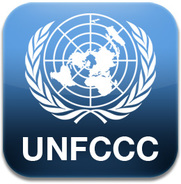 The 1st June marks the beginning of 2 weeks of UNFCCC negotiations held in Bonn, where Healthy Planet will be part of the IFMSA delegation focusing on ADP2.9 (Ad Hoc working group on the Durban Platform for Enhanced Action). Success in COP20 in Lima and ADP 2.8 means that health co-benefits now feature in the draft text, however, with a lot of cuts expected to be made in order to construct an appropriate text for Paris, there is still a lot of work in ensuring health remains a priority. What is the Ad Hoc Working Group on the Durban Platform for Enhanced Action….? The ADP was set up at COP17 in Durban in 2011. It’s main mandate is to construct a protocol with legal force by 2015 which will be implemented by 2020. It is split into 2 main areas - workstream 1 and workstream 2. Workstream 1 is concerned with the architecture of the 2020 agreement - considering factors such as the legally binding nature and how emissions will be measured, reviewed and verified (MRVs). Workstream 2 looks at how to close the emissions gap, which is the current gap between scientific targets and countries emission reduction commitments (which is worryingly large!) Mitigation targets are currently defined using some more lovely acronyms - NAMA and MRV - with NAMA standing for Nationally Appropriate Mitigation Actions, which are emissions targets for developing countries and MRV for Measurable Reportable and Verifiable targets to ensure greater accountability for the higher emitters in the developed world. The IFMSA delegation will be working with other organizations dealing with health and climate change including the WHO, YOUNGO and Healthcare without Harm to reinforce the message that climate change is both a health emergency and a tremendous opportunity to improve population health. We will be promoting our policy brief which outlines the main areas in the ADP text in which health impacts and health co-benefits should be reinforced. ADP 2.9 comes at a time when the impacts of climate change are more stark than ever, and it is clear urgent action must be prioritized leading up to the implementation of a global agreement in 2020. The recent earthquake in Nepal, which killed over 8000 people, is one of very few earthquakes to be attributed to melting glaciers and changing weather patterns due to climate change disrupting the integrity of the Earth’s structure. Some of the worst droughts in history are currently being experienced in California, destroying agricultural livelihoods and threatening food and water security for millions of people. These impacts are only going to get worse, thus during these 2 weeks With the World Health Assembly passing a resolution to cut fossil fuel use due to the public health impacts of air pollution, China rapidly transitioning to renewables due to devastating health impacts of air pollution and Barack Obama putting public health at the core of his climate change message in April, there is reason to hope that climate and health will feature more prominently than ever in the upcoming weeks in Bonn and continue building momentum in the lead up to Paris and beyond.
0 Comments
Your comment will be posted after it is approved.
Leave a Reply. |
Details
Archives
February 2019
Tags
All
|
 RSS Feed
RSS Feed
